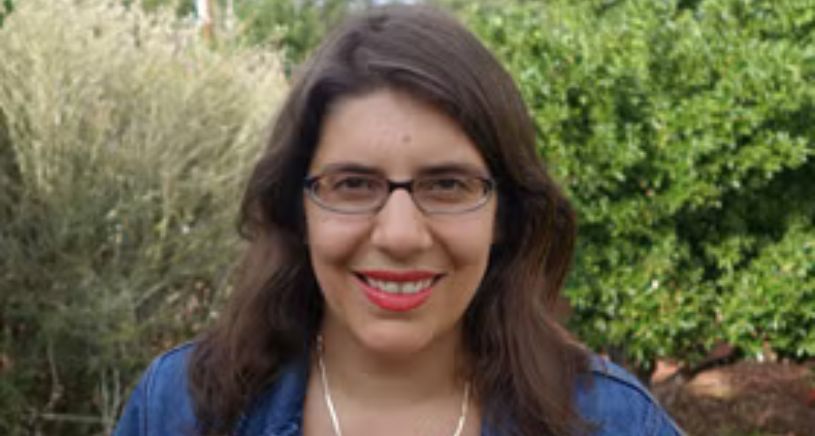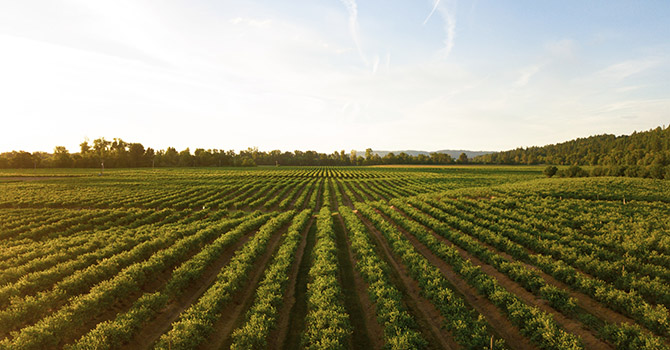Faculty Profile

Alexis J. Handal, PhD, MPH
- Associate Professor, Epidemiology
- Associate Professor, Global Public Health
Dr. Handal's research expertise is in occupational and environmental epidemiology, reproductive epidemiology, social epidemiology, and global health, and in particular, she works with Latinx and Indigenous populations in Latin America and in the United States. Dr. Handal studies the impact of large-scale agricultural production on the health of workers and surrounding communities, and with a particular focus on the health of female workers and pregnant workers and their families. Her community-engaged and participatory research approach uses a health equity lens focusing on understanding the interconnection between chemical exposures, and social and work stressors and supports in the context of precarious employment, on worker health and on maternal and child health and development. Dr. Handal's research interests also include exploring the health impact of worker's rights for pregnant employees, including an examination of worker protection legislation and gender discrimination on maternal and child health. Dr. Handal appreciates and promotes the use of community-based participatory research (CBPR) and mixed methods approaches in epidemiologic research.
- Post-Doctoral Fellow, Division of Epidemiology, Statistics and Prevention Research, National Institute for Child Health and Human Development (NICHD), Rockville, MD.
- PhD, Epidemiological Sciences, University of Michigan.
- MPH, Epidemiology-International Health, University of Michigan.
- BA, Biochemistry and Molecular, Cellular, and Developmental Biology, University of Colorado-Boulder.
Research Interests:
Environmental health, occupational health, maternal and child health, reproductive
health, social determinants, health equity, community-based participatory research,
mixed methods, capacity building
Research Projects:
Over the past two decades, Dr. Handal has worked in Ecuador studying the impact of
export-led flower production on maternal and child health and child development. Her
early studies identified important factors that may adversely impact child health
and development such as toxic exposures, maternal stress, and nutritional deficiencies
and malnutrition, to name a few. Dr. Handal's current NIH-funded birth cohort study
(R011ES026603), in partnership with Dr. Fadya Orozco (USFQ), examines the impact of
fungicidal exposure and other critical social stressors associated with the presence
of the flower industry on pregnancy and subsequent infant health. The SEMILLA study
(Study of Environmental Exposure of Mothers and Infants Impacted by Large-Scale Agriculture)
follows pregnant women (workers and non-workers) and their infants in a flower-growing
region of Ecuador to assess how toxic chemical exposure, combined with key social
and structural factors, impacts child growth and development.
Dr. Handal is the Principal Investigator of the Michigan Farmworker Project (MFP). Developed in 2019, in collaboration with Dr. Lisbeth Iglesias-Rios, the goal of this community-based participatory research program is to provide a deeper understanding of the complex working and living conditions of migrant and seasonal farmworkers in the state of Michigan. The MFP seeks to examine the occupational and environmental health exposures experienced by farmworkers in Michigan and relate this understanding to broader social and structural determinants such as labor exploitation and forced labor.
Dr. Handal recently completed a collaboration as a co-investigator on a NIH-funded study testing an ecological/empowerment approach to reducing mental health disparities among immigrant Latinx families in New Mexico by examining the effectiveness of a community-based advocacy, learning, and social support intervention (Immigrant Well-being Project) that addresses social determinants of mental health. That project is part of the National Institute of Minority Health and Health Disparities-funded (U54 MD004811-06) Transdisciplinary Research, Equity and Engagement Center for Advancing Behavioral Health (TREE Center) which studies how social determinants, including historical trauma, adverse childhood experiences and the combined effects of poverty and discrimination, affect behavioral health in marginalized populations.
Iglesias-Rios L, Marin D, Moberg K, Handal AJ. The Michigan Farmworker Project: Development of a Community-Engaged Research Project Assessing Precarious Employment, Labor Exploitation and Perceptions of Labor Trafficking. Journal of Community Engagement and Scholarship. In press.
Handal AJ, Vasquez Guzman CE, Hernandez-Vallant A, Lemus A, Hess JM, Casas N, Medina D, Galvis M, Huyser K, Goodkind JR. Measuring Latinx/@ Immigrant Experiences: Adaptation of Discrimination and Historical Loss Scales. American Journal of Orthopsychiatry. In press.
Handal AJ, Iglesias-Rios L, Fleming P, Valentin-Corts MA, O'Neill MS. "Essential" but expendable: Farmworkers during the COVID-19 pandemic - The Michigan Farmworker Project. AJPH December 2020, Vol 110 (12): 1760-1762. doi: 10.2105/AJPH.2020.305947
Handal AJ, Hund L, Paez M, Bear S, Greenberg C, Fenske R, Barr DB. Characterization of pesticide exposure in a sample of pregnant women in Ecuador: Results of a pilot longitudinal cohort study. Archives of Environmental Contamination and Toxicology 70(4): 627-39. 2016.
Handal AJ, Harlow SD., Breilh J, Lozoff B. Occupational Exposure to Pesticides during Pregnancy and Neurobehavioral Development in Ecuadorian Children in a Flower Growing Region of Ecuador. Epidemiology 19(6): 851-9. 2008.
Handal AJ, Lozoff B, Breilh J, Harlow SD. Effect of Community of Residence on Neurobehavioral Development in Infants and Young Children in a Flower Growing Region of Ecuador. Environmental Health Perspectives 115(1): 128-133. 2007.
For a more complete list of publications, see https://pubmed.ncbi.nlm.nih.gov/ or https://scholar.google.com/.
Email: [email protected]
Office: 734-647-3957
Fax: 734-936-9271
Address: 6622 SPH I
1415 Washington Heights
Ann Arbor, MI 48109
For media inquiries: [email protected]


